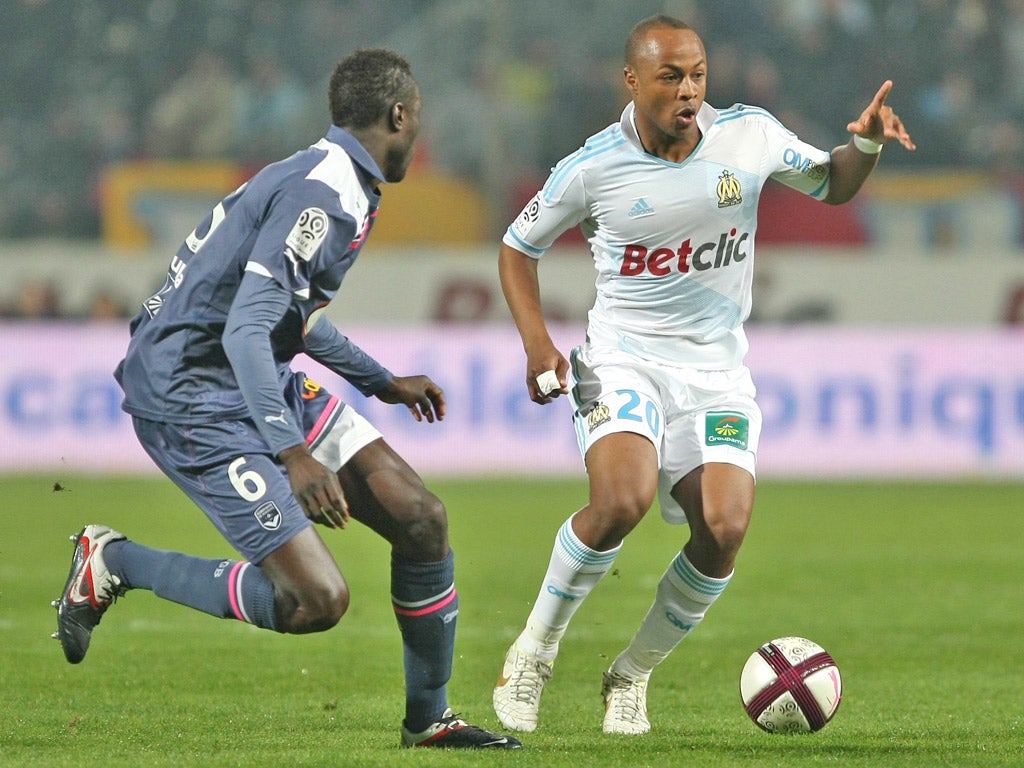Ayew hopes to copy his father and win top African award

Your support helps us to tell the story
From reproductive rights to climate change to Big Tech, The Independent is on the ground when the story is developing. Whether it's investigating the financials of Elon Musk's pro-Trump PAC or producing our latest documentary, 'The A Word', which shines a light on the American women fighting for reproductive rights, we know how important it is to parse out the facts from the messaging.
At such a critical moment in US history, we need reporters on the ground. Your donation allows us to keep sending journalists to speak to both sides of the story.
The Independent is trusted by Americans across the entire political spectrum. And unlike many other quality news outlets, we choose not to lock Americans out of our reporting and analysis with paywalls. We believe quality journalism should be available to everyone, paid for by those who can afford it.
Your support makes all the difference.Ghana winger Andre "Dede" Ayew could cement his family's status as Africa's foremost soccer dynasty if he emulates his father by becoming the continent's Footballer of the Year today. Ayew is one of three candidates for the Confederation of African Football (Caf) 2011 award to be announced in Accra, when he goes up against Seydou Keita, of Mali, and Ivory Coast midfielder Yaya Touré for the accolade.
Ayew's father, Abedi Pele, was the first player to win the award three times, winning from 1991 to 1993 mainly for his achievements at club level with Marseilles.
Ayew's successful year at the same club, plus his role in helping Ghana qualify for next year's African Nations Cup finals, sees him make the short-list of candidates. But it is more likely that his popular bow-legged running style and silky touches, strongly reminiscent of his father, has dominated the thinking of the judges who have controversially omitted several other worthy candidates.
Those missing out include Moussa Sow, of Senegal, a top-scorer with Lille, and Ivorian Gervinho, his fellow striker at the French champions before joining Arsenal.
Ayew, who was just two years old when his father was first named African Footballer of the Year, will be the sentimental favourite at the gala awards night in Ghana but he faces a strong challenge from Keita and Touré.
Mali's Keita made more appearances for Barcelona last season than any other outfield player and had a brief cameo as a late substitute in the Champions League final win over Manchester United at Wembley in May. But the 31-year-old boycotted Mali's national team until last month in a dispute with federation officials.
Touré scored the FA Cup final winner for Manchester City against Stoke City in May and has been a regular in the club's ascent to the top of the Premier League this season. Touré, 28, also played an important role as Ivory Coast achieved the only 100 per cent record in the Nations Cup qualifiers.
If Ayew wins, he will be the second European-born player to take the award having been born in France in 1989, when his father played at Lille. Paris-born Frédéric Kanouté, of Mali, won the award in 2007. The African Footballer of the Year is decided by one vote from each of the 53 Caf member associations, cast either by the national coach or technical director.
Meanwhile, the CSKA Sofia defender, Kostadin Stoyanov, faces a ban of up to two years after he failed a drugs test, the Bulgarian club announced yesterday. Bulgaria international Stoyanov, 25, tested positive for the banned stimulant Methylhexanamine after CSKA's 1-0 league win over their city rivals, Levski on 28 October.
CSKA, 31-times Bulgarian champions, said the analysis of Stoyanov's B sample confirmed the presence of the banned substance in his urine.
"We have nothing to hide, it's a fact," CSKA's lawyer Radostin Vasilev told local media, adding that the club would give more details at a news conference.
Stoyanov, who was instrumental in helping CSKA to win the Bulgarian Cup last season, will find out the length of his ban in the next three weeks.
"The possible sanction is between six months and two years," said Belcho Goranov, general secretary of the Bulgarian Olympic Committee, which will decide the length of Stoyanov's suspension.
Join our commenting forum
Join thought-provoking conversations, follow other Independent readers and see their replies
Comments